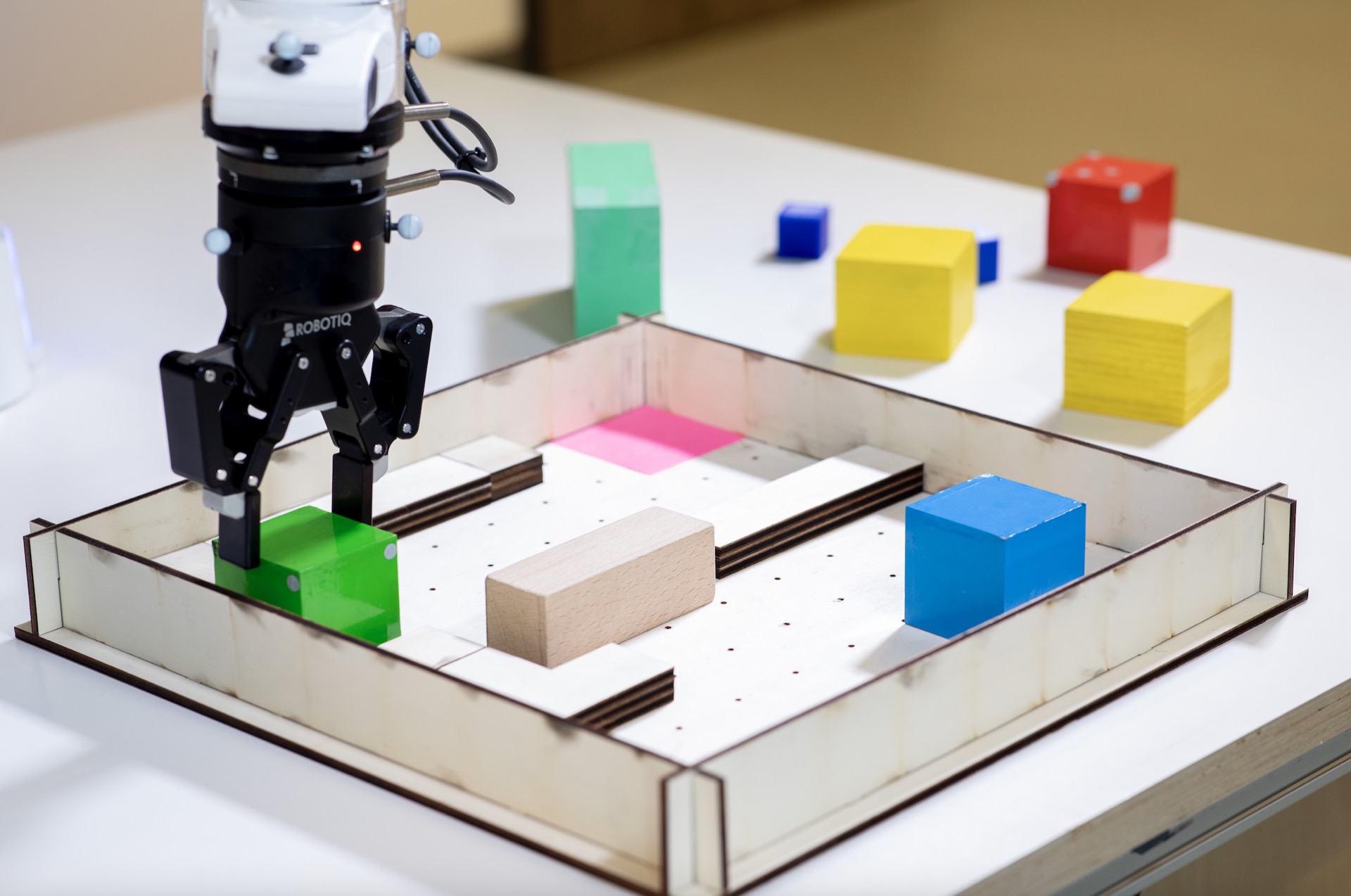Our Research Structure
Research Strategy
Intelligence research is an interdisciplinary effort that requires a specific research strategy and structure. At SCIoI, this structure is composed of four different research units whose research questions and results are interdependent and complementary.
First, we observe intelligent behaviors in nature and attempt to synthesize them (Unit 1). From these studies, we extract general principles of intelligence (Unit 2), which we further develop within technical systems in a next step (Unit 3). This research strategy is accompanied by an ongoing evaluation of ethical and philosophical parameters of intelligence research (Unit 4). Click here for a more in-depth look at each unit.
The synthetic-analytic loop
We consider intelligent behavior not only in terms of its various functions and components, but as something complex that can only be studied as a whole.
For this purpose, we combine analytical, mostly non-technical disciplines with synthetic, technical methods, and both fields are in continuous evaluation process with each other. For each SCIoI research project, individual functional principles are elaborated and synthesized so that intelligent behavior can be mapped and described.
Intelligence research inevitably raises ethical questions. Our research helps us understand how to deal with such questions and understand the right methodology for an ethical intelligence research.
The example behaviors
In addition to the four research units mentioned above, research at SCIoI is subdivided further in three subunits, each pertaining to a specific type of intelligence, characterised by a corresponding intelligent behavior. These example behaviors are chosen to capture fundamental aspects of individual intelligence, social intelligence, and collective intelligence.
Individual intelligence is attributed to a single agent behaving in their environment (e.g. assembling a shelf without a manual).
Social intelligence is exhibited when several agents that exhibit individual intelligence interact with each other (e.g. hiding an object from another person).
Collective intelligence is exhibited by many agents, but in contrast to social intelligence, the resulting behavior cannot be attributed to any of the individuals but only to their collective (e.g. a swarm of fish escaping a predator).
The three chosen and illustrated example behaviors and their respective types of intelligence are:
Behavior 1: individual intelligence
Escaping from an escape room

Behavior 2: social intelligence
Learning in social interaction

Behavior 3: collective Intelligence
Cooperative shepherding







